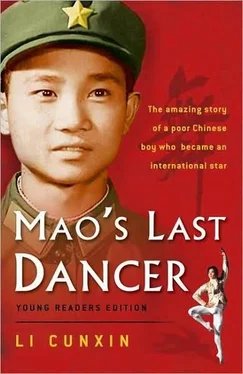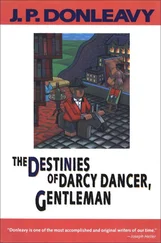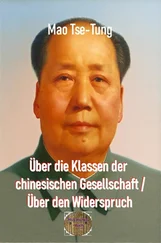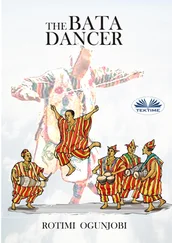My family's house looked into the back of someone else's house and that house looked directly into theirs. It had a small front courtyard which was enclosed, in years to come, by six-foot stone walls. People with money had the stones delivered and secured with mortar, but my family was too poor, so my father and some of the older sons went to the mountains to bring those stones back themselves, by horse and cart. You could see through the holes in the wall and spy on the neighbours and once part of the wall fell apart.
My family's property had no backyard. The house itself was built with big stones and bricks, with German-style terracotta tiles, made locally. Inside, my parents and their sons had four rooms: two small bedrooms about eight-foot square, a slightly larger bedroom about ten-foot square and the kitchen-cum-living room, which was about the same size as the larger bedroom. It had two built-in woks with big windboxes attached to make fire. Those woks occupied three-quarters of the space in that room. Crockery cupboards were built into the walls, and a small freestanding wooden pantry, made by my father, stood in one corner. There was no refrigeration and no running water, only a huge clay pot for storing drinking water. If both woks were in use at the same time, there would be no space for people to pass through that room without having to move aside whoever was operating the windbox.
The woks backed onto the bedroom walls, which were covered with newspaper "wallpaper", and which contained the chimneys. Fire and smoke would travel through under the mud-brick beds and escape through the walls on the other side. The mudbricks were supposed to retain heat but they were not very effective: as the night wore on the beds became colder.
The floor was a reddish earth. During the wet weather, water always seeped through the earth and my father would have to take out the wet floor and wait for a dry day to replace it, every inch with new earth, pounding it down with a huge wooden hammer. The harder the floor, the less chance there was for the water to penetrate.
There were no wardrobes in the house. Clothes were stored in papier-mâaché boxes my mother made, stacked on the two small beds during the day and moved onto the floor at night. There was also a main bed about the size of a small double bed, and eventually my parents and all their sons had to share those three beds. The main bedroom was also the room where my family ate, and the only room with an attic: it was my father's secret hiding place for important things like money. Others were forbidden to go there.
After waking each morning on the freezing beds, everyone would fold the blankets into rolls and tuck them neatly away. What remained was a bamboo mat. A wooden tray about two foot by four, passed down from my father's ancestors, would be placed on top of the mat and the family would sit around it, cross- legged, knee to knee, to eat each meal. Three of the older sons had to sit on wooden stools by the edge of the bed because there wasn't enough room around the tray for everyone.
My family had to go to one of the village wells to fetch water, carrying it back in two buckets that hung from either end of a bamboo pole balanced across the shoulder. The adults and the big boys would carry big buckets and the little boys had smaller buckets. Water was heated in the big wok, and wooden or clay basins about three-foot wide and a foot deep were used for baths. There was one public bath in the commune shared by over ten thousand people, which my family couldn't afford, and no bathroom in the house, only a toilet, which was a hole in the ground in the front courtyard. You had to stand or crouch on two wooden boards, one each side of the hole. There was no roof, so it was freezing cold in the winter. Half of the toilet was inside the wall, and half outside, to allow the lowest class of labourer in the village to collect the waste, which was used in the fields as fertiliser. He'd use a wooden spoon-like scooper and pour the waste into two wooden barrels that sat each side of his wheelbarrow. The shit-man pushed his wheelbarrow through the narrow streets every day, and if people were coming towards him, they'd move aside and allow him to pass. One day the shit-man had a collision with a bicycle. The foul contents of the wheelbarrow ran all over the street. What a smell! Even after the neighbours washed the shitty area over and over with water, the dreadful smell remained and everyone avoided that street for a long time. Neighbours complained to the head of the village and tried to have the shit-man replaced, but no one else wanted to be the next shit-man.
My family had to utilise every inch of their front yard. There was a small vegetable patch, climbing beans on the stone walls, and a pigsty with a couple of pigs, but there was never enough food to feed the people, let alone the pigs, so the pigs were always very thin. Eventually they were sold to the commune. There was also a chicken yard, but again, the chickens never received enough food to produce many eggs, and the few they did lay were sold in the market for badly needed cash.
The commune allocated each family in the village a piece of land.
My family's was one twentieth of an acre, halfway up the Northern Hill, about fifteen minutes from home. It was so small that it could only be used to grow essential foods, such as corn and yams. On Sundays, which was the only day my father could spend at home, the entire family, including the children, worked on this land with him. All the land in Li Commune was divided into small, stepped terraces, and everything was done by hand using shovels, picks, hoes, sickles and ploughs. At one stage the village had the luxury of two old, starved oxen, which were used for ploughing, but they were slow and often refused to walk, despite constant whipping. They too eventually died, one after another.
My mother's earnings, as with all the peasants', depended on the weather and luck. They had no say in what to plant: the central government in Beijing decided that. My family's area planted mainly wheat in the winter, corn, yams and sorghum the rest of the year. The government would get the first and biggest portion, at the government-set price, and the rest was divided among the peasants according to the number of members in each family and how many points the family earned during the year. This apportioned food would be counted against your earnings at the end of that year. Every day, the head of each working group in the village would register who worked and for how many hours. Then, at the end of each month, all the peasants would gather and decide how many points each person was entitled to. The most a man could earn in a single day was ten points, which was about one yuan or roughly seventeen US cents then. Women normally received about half a man's earnings.
One year, there was a severe drought and nobody was paid a single yuan for a whole year. The village had to borrow some money from the Qingdao government to lend every family so they could buy food to survive. It took the people in the village more than two years to repay that loan, and still the peasants had to eat anything that moved, and some things that didn't. Often they couldn't even find any bark to eat.
My family was very poor, but there were even poorer people than the Li family in our commune. By the time I was born there was deprivation and disease everywhere. Three years of Mao's Great Leap Forward and three years of bad weather had resulted in one of the greatest famines the world had ever seen. Nearly thirty million people died. And my parents, like everyone else, were desperately fighting for survival.
• • •
I was my parents' sixth son. I was born on 26 January 1961. By then my parents had been married for fifteen years and the Li family had grown to become a large extended family. Our na-na, my father's mother, lived next door, and his fourth brother (we called him Fourth Uncle) lived next to her. Our third uncle's family lived in front of us, but he died of an unknown disease in his early thirties and left four young girls and a boy. My father, who we called Dia, and our fourth uncle, became their de facto fathers.
Читать дальше












